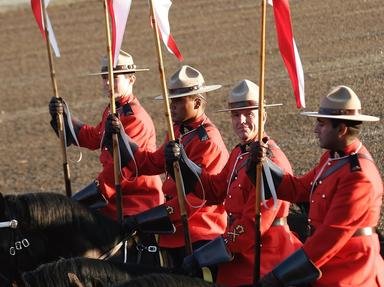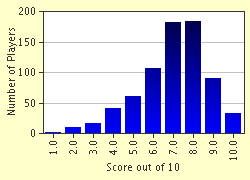Quiz Answer Key and Fun Facts
1. Who was the first Prime Minister of Canada?
2. In what year was Canada "born" as a country?
3. Which of the following provinces is not one of the original four Canadian provinces?
4. Canada got its name from the Iroquois word "kanata". What does it mean?
5. Which new province or territory/ies came into existence in Canada on April 1, 1999?
6. What part of Canada was discovered by Europeans hundreds of years before the famous Christopher Columbus began exploring?
7. Before the 2002 Winter Olympics in Salt Lake City, USA, when was the last time that a Canadian team had won Olympic Gold in men's ice hockey?
8. Who was the second Prime Minister of Canada?
9. In what year was the CN Tower completed?
10. Who drove in the last spike in the Canadian Pacific Railway?
Source: Author
jnoel12
This quiz was reviewed by FunTrivia editor
bloomsby before going online.
Any errors found in FunTrivia content are routinely corrected through our feedback system.


